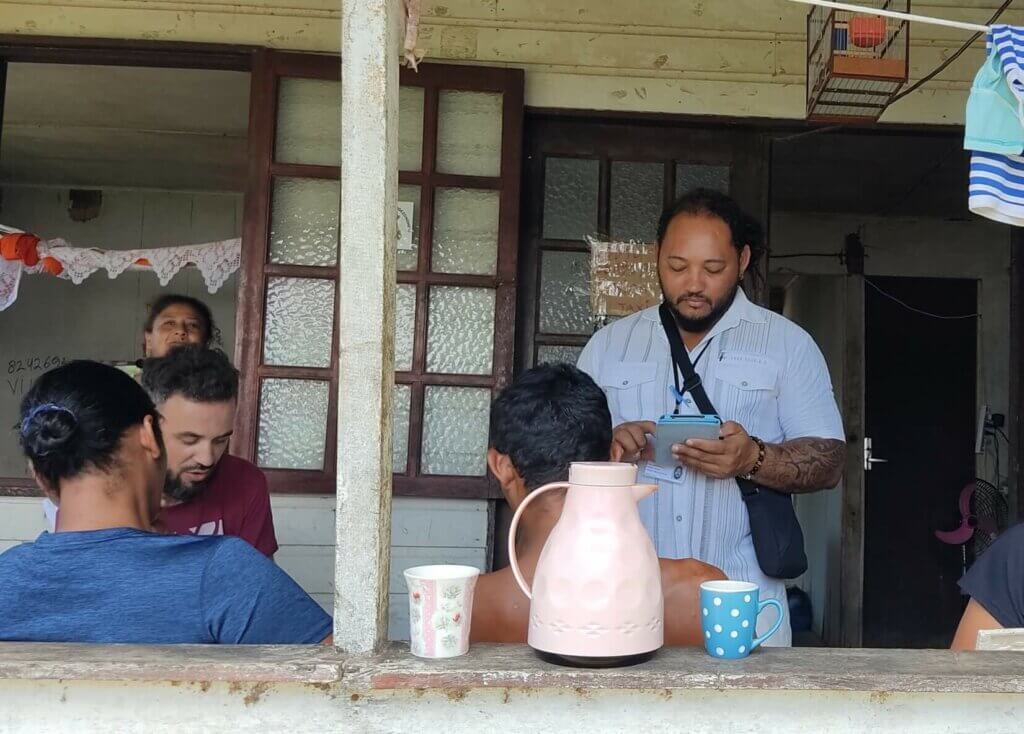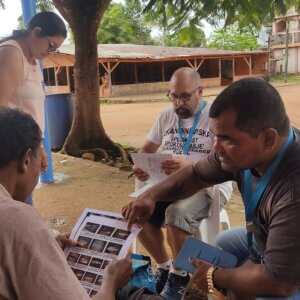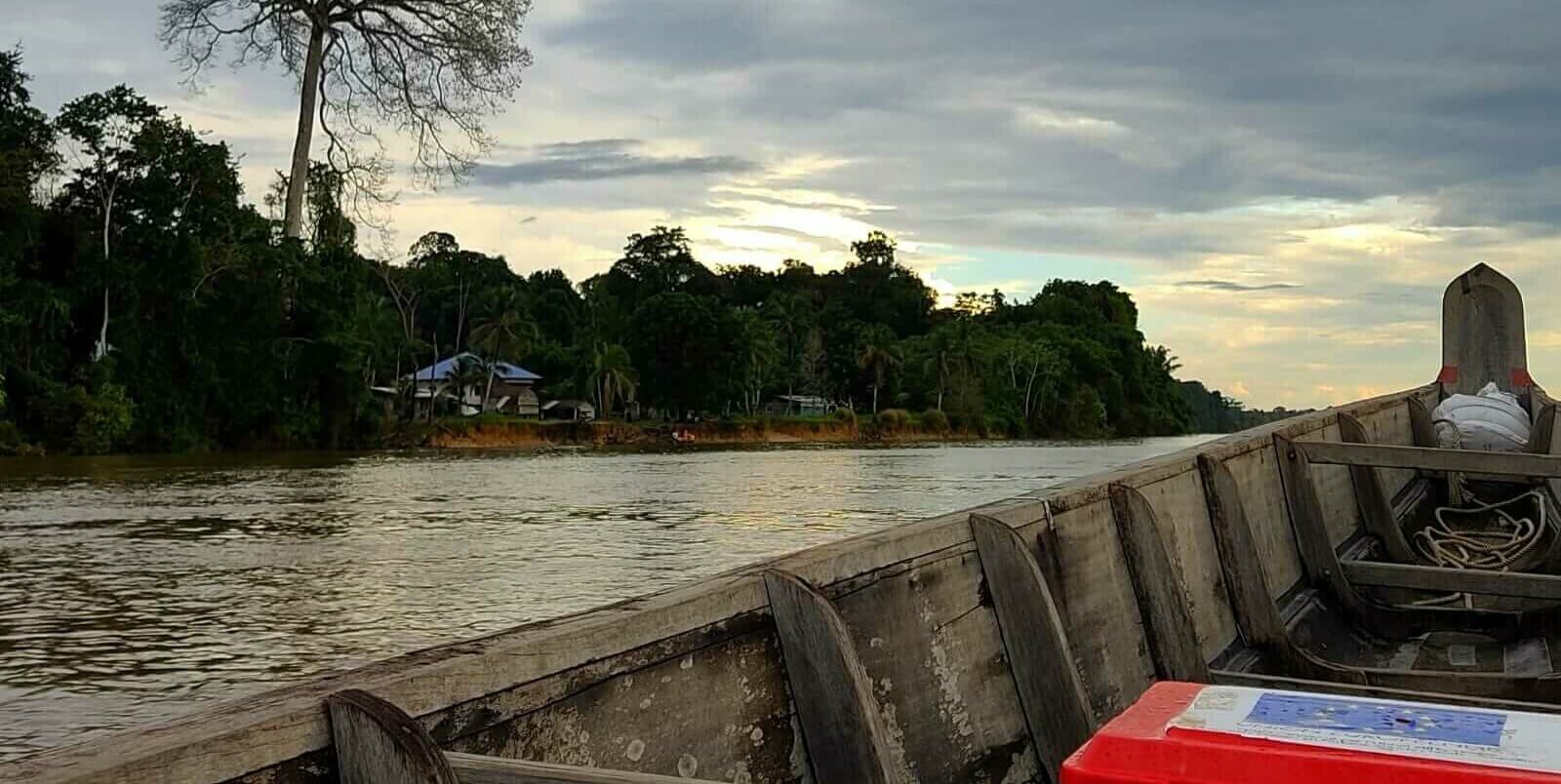Cross-sectional pre- and post-intervention surveys (ORPAL 3 and 4)

These surveys take place over a period of 3 months on the shores of the Maroni River on the Suriname side, and the Oyapock River on the Brazil side, in the same localities as the CUREMA intervention.
On each river, the survey is carried out by a team of three people: a doctor, a nurse and a facilitator. Each week, the team travels to the inclusion sites to carry out an electronic questionnaire on a tablet, lasting around 40 minutes, as well as biological sampling and a medical examination.
Based on the model of the ORPAL1 and 2 surveys carried out in 2015 and 2019 to evaluate the Malakit project, these surveys are used to evaluate the CUREMA intervention.
Their aim is to generate the main criteria for judging the effectiveness of CUREMA’s intervention, by estimating the prevalence of malaria in the study population, in a comparative way before and after the intervention. All-species prevalence will be measured by ultrasensitive PCR on venous blood samples, in collaboration with the Parasitology Laboratory of the Institut Pasteur de la Guyane.
ORPAL surveys are also used to meet the CUREMA project’s secondary objectives, in particular:
– describe and compare trends in malaria prevalence by species ;
– describe and compare trends in P. vivax seroprevalence, using the method described by Longley et al.
– estimate the proportion of the study population who had access to the intervention
– continue to evaluate the management of malaria episodes in the study population, and in particular the use of Malakit
– study the general health of the study population
To take part, people must be 18 or over and have been on a mining site in French Guiana for less than 7 days.
These surveys provide valuable information for evaluating the CUREMA project, as well as providing information on changes in the health situation of people working in gold-mining areas in French Guiana.

